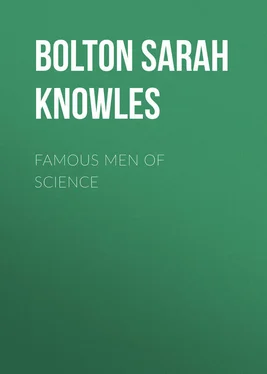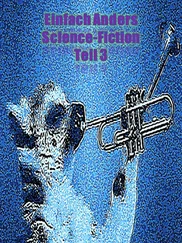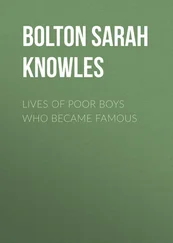Sarah Bolton - Famous Men of Science
Здесь есть возможность читать онлайн «Sarah Bolton - Famous Men of Science» — ознакомительный отрывок электронной книги совершенно бесплатно, а после прочтения отрывка купить полную версию. В некоторых случаях можно слушать аудио, скачать через торрент в формате fb2 и присутствует краткое содержание. ISBN: , Жанр: foreign_language, foreign_antique, foreign_prose, Биографии и Мемуары, на английском языке. Описание произведения, (предисловие) а так же отзывы посетителей доступны на портале библиотеки ЛибКат.
- Название:Famous Men of Science
- Автор:
- Жанр:
- Год:неизвестен
- ISBN:http://www.gutenberg.org/ebooks/35489
- Рейтинг книги:3 / 5. Голосов: 1
-
Избранное:Добавить в избранное
- Отзывы:
-
Ваша оценка:
- 60
- 1
- 2
- 3
- 4
- 5
Famous Men of Science: краткое содержание, описание и аннотация
Предлагаем к чтению аннотацию, описание, краткое содержание или предисловие (зависит от того, что написал сам автор книги «Famous Men of Science»). Если вы не нашли необходимую информацию о книге — напишите в комментариях, мы постараемся отыскать её.
Famous Men of Science — читать онлайн ознакомительный отрывок
Ниже представлен текст книги, разбитый по страницам. Система сохранения места последней прочитанной страницы, позволяет с удобством читать онлайн бесплатно книгу «Famous Men of Science», без необходимости каждый раз заново искать на чём Вы остановились. Поставьте закладку, и сможете в любой момент перейти на страницу, на которой закончили чтение.
Интервал:
Закладка:
And then June 22, in the forenoon, in the large hall of the Dominican Convent of St. Maria sopra la Minerva, in the presence of cardinals and prelates, he heard his sentence.
"The proposition that the sun is the centre of the world and does not move from its place is absurd, and false philosophically, and formally heretical, because it is expressly contrary to the Holy Scripture.
"The proposition that the earth is not the centre of the world and immovable, but that it moves, and also with a diurnal motion, is equally absurd and false philosophically; and theologically considered, at least, erroneous in faith… Invoking, therefore, the most holy name of our Lord Jesus Christ and of His most glorious mother and ever Virgin Mary … we say, pronounce, sentence, declare, that you, the said Galileo, by reason of the matters adduced in process, and by you confessed as above, have rendered yourself, in the judgment of this Holy Office, vehemently suspected of heresy, – namely, of having believed and held the doctrine, which is false and contrary to the sacred and divine Scriptures, – that the sun is the centre of the world and does not move from east to west, and that the earth moves and is not the centre of the world… We condemn you to the formal prison of this Holy Office during our pleasure, and, by way of salutary penance, we enjoin that for three years to come you repeat once a week the seven Penitential Psalms."
Galileo was also required to "abjure, curse, and detest the aforesaid errors and heresies." And then the white-haired man of seventy, humbly kneeling before the whole assembly, made the pitiful abjuration of his belief. "I abjure with a sincere heart and unfeigned faith, I curse and detest the said errors and heresies, and, generally, all and every error and sect contrary to the Holy Catholic Church."
Pitiful spectacle of intolerance! If we of this nineteenth century have learned to tolerate and treat with respect the beliefs of others though widely divergent from our own, perhaps this wretched drama was not acted in vain.
It has been said that Galileo exclaimed as he rose from his feet, " E pur si muove ," "It moves, for all that," but this would have been well nigh an impossibility, in the midst of men who would instantly have taken him to a dungeon, and the story is no longer believed.
On July 9, poor Galileo was allowed to leave Rome for Siena, where he stayed five months in the house of the archbishop, and then became a prisoner in his own house at Arcetri, with strict injunctions that he was "not to entertain friends, nor to allow the assemblage of many at a time."
He wrote sadly to Maria Celeste, "My name is erased from the book of the living." Tender words came back, saying that it seemed "a thousand years" since she had seen him, and that she would recite the seven penitential psalms for him, "to save you the trouble of remembering it."
In less than a year, sweet Maria Celeste had said the last psalms for him. She died April 1, 1634, at thirty-three years of age, leaving Galileo heart-broken; "a woman," he said, "of exquisite mind, singular goodness, and most tenderly attached to me."
He went to work on another book, but he said, pathetically, "I hear her constantly calling me!" Beautiful spirit, that will forever shed a halo around the name of Galileo Galilei!
In the summer of 1636, he completed his "Dialogues on Motion," and sent it to Leyden for publication. The next year he made his last discovery, known as the moon's librations.
The house at Arcetri had become dark and lonely. The wife of Michelangelo, her three daughters and a son, had all died of the plague. It was doubly dark, for Galileo had become hopelessly blind, "so that this heaven, this earth, this universe, which I by my marvellous discoveries and clear demonstrations had enlarged a hundred thousand times beyond the belief of the wise men of bygone ages, henceforward for me is shrunk into such a small space as is filled by my own bodily sensations."
His last work was a short treatise on the secondary light of the moon. "I am obliged now," he said, sadly, "to have recourse to other hands and other pens than mine since my sad loss of sight. This, of course, occasions great loss of time, particularly now that my memory is impaired by advanced age; so that in placing my thoughts on paper, many and many a time I am forced to have the foregoing sentences read to me before I can tell what ought to follow; else I should repeat the same thing over and over."
He had planned other work, but death came on the evening of January 8, 1642, eight years after Celeste left him. His beloved pupils, Torricelli and Viviani, and his son Vincenzo, stood by his bedside.
He desired to be buried in the family vault of the Galilei in Santa Croce, at Florence, and the city at once voted a public funeral and three thousand crowns for a marble mausoleum. But the church at Rome prevented, lest the pernicious doctrine that the earth moves, should thereby have confirmation. He was therefore buried in an obscure corner of Del Noviziato, a side chapel of Santa Croce.
A century later, March 12, 1737, in the presence of the learned men of Italy, with great ceremony, the bones of Galileo were removed to a new resting-place in Santa Croce, and buried with his beloved friend, Viviani. An imposing monument was erected over him. The truth finally triumphed, as it always does. The works of Galileo, in sixteen volumes, are no longer prohibited, as they were in his lifetime.
SIR ISAAC NEWTON
In the same year, 1642, in which Galileo, sad and blind, went away from the earth, Sir Isaac Newton came to make his home upon it.
He was born December 25, the only child of Isaac Newton and Hannah Ayscough. The father died at thirty-seven, a few months after his marriage, and the young wife, after the birth of her child, was both father and mother to the helpless infant. He was so frail that there seemed little probability that he could live to manhood, or even boyhood. Naturally, between mother and son there grew a most ardent affection, which neither time nor death could change.
The manor-house of Woolsthorpe in Colsterworth, Lincoln county, was a two-story stone building, owned for a century by the Newton family, and bringing a limited income from the little farm in connection with it. Here Isaac passed his childhood, going to the schools near by, and learning to read, write, and cipher.
At twelve, he was sent to the public school at Grantham, where he showed little taste for study, and managed easily to stand at the foot of his class. When he was the last in the lowermost form but one, the boy next above him, as they were going to school, gave Isaac a kick, which occasioned severe pain. Stirred with wrath, Isaac challenged the other boy to a fight. For this purpose, they repaired to a neighboring churchyard, where young Newton, though much the smaller and weaker of the two, pounded his antagonist till he was glad to come to any terms of submission.
He resolved now that this boy should no longer stand above him in scholarship, and with a new ambition and energy born of his insult, he soon rose to the highest place in the school. It was not idleness, probably, that made Newton a poor scholar, but his mind was absorbed with making saws, hammers, hatchets, and other tools.
He made a windmill and placed it on the top of his home, the wind putting it in motion. When there was no wind, a novel expedient was resorted to. A mouse, which was called "the miller," was trained to turn the windmill by walking on a tread wheel, with some corn just beyond his reach! All through life, he was exceedingly kind to animals, and could never tolerate shooting or hunting for sport. He objected to one of his nephews, when praised in his presence, "that he loved killing of birds," and this was sufficient to win his disesteem. It is probable, therefore, that the little mouse was kindly cared for by the young experimenter.
Читать дальшеИнтервал:
Закладка:
Похожие книги на «Famous Men of Science»
Представляем Вашему вниманию похожие книги на «Famous Men of Science» списком для выбора. Мы отобрали схожую по названию и смыслу литературу в надежде предоставить читателям больше вариантов отыскать новые, интересные, ещё непрочитанные произведения.
Обсуждение, отзывы о книге «Famous Men of Science» и просто собственные мнения читателей. Оставьте ваши комментарии, напишите, что Вы думаете о произведении, его смысле или главных героях. Укажите что конкретно понравилось, а что нет, и почему Вы так считаете.












